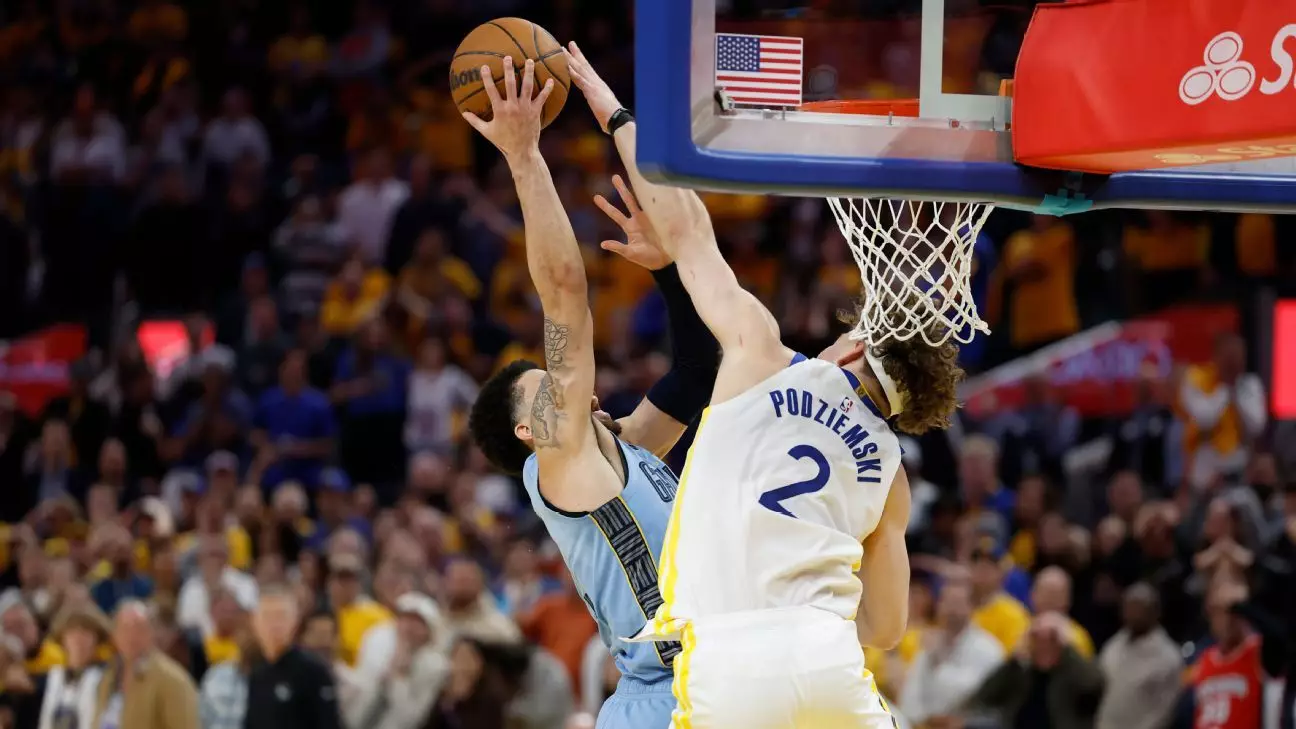In the realm of professional sports, officiating is often a double-edged sword; it can either bolster the excitement of a game or spark heated debates among players and fans alike. The recent clash between the Golden State Warriors and the Memphis Grizzlies provided a perfect backdrop for discussing the intricacies and challenges of NBA officiating, especially in the dying moments of a high-stakes game. With the Warriors’ 121-116 victory, two crucial calls emerged as points of contention that unveiled the vulnerabilities within the officiating system.
The Anatomy of Mistakes
To dive deeper into this narrative, we must first examine the officiating decisions that have sparked conversation among analysts and fans alike. With merely 37 seconds remaining on the clock, Golden State’s Brandin Podziemski faced a pivotal moment when he was mistakenly whistled for a foul while attempting to block Grizzlies guard Scotty Pippen Jr. What should have been a highlight-reel defensive play turned into a critical foul call, granting Memphis free throws that altered the game’s dynamics. This kind of misstep raises questions: How can officiating crews improve their calls in crucial moments? The human element of officiating invites biases and errors, which can dramatically change a game’s outcome.
Game-Changing Non-Calls
As the clock dwindled further down to just 7.3 seconds, the infestation of controversy continued when Ja Morant appeared to reach in on Stephen Curry, ultimately resulting in the wrong team retaining possession. Such non-calls can produce seismic shifts in momentum, leading to implications that extend beyond the confines of that single match. The NBA’s admission of these incorrect decisions does little more than highlight an ongoing concern: Does the current officiating protocol empower referees to make consistent and accurate decisions?
The Ripple Effects on Player Strategy
Beyond the calls themselves, the repercussions that follow can trickle down to affect player strategy and coaching decisions. For instance, the looming threat of Draymond Green fouling out with an incorrect non-call looming makes players alter their gameplay as they navigate a precarious balance between aggression and prudence. Such a reality not only influences individual performance but also seeks to reshape how teams approach late-game situations. The Warriors secured their victory, but they walked a tightrope of uncertainty that will linger as they aim to advance further into the postseason.
Securing the Future of Fair Play
While the game’s intensity undoubtedly captivates fans and players alike, the ongoing issues of officiating put a damper on the collective experience. As discussions continue to swirl around improving the integrity of the game, the NBA must confront the need for adaptive frameworks that can mitigate human error while also retaining the sport’s raw essence. Whether through advanced technology or enhanced training for referees, the league’s willingness to embrace evolution in officiating could pave the way for a more transparent and dynamic phase of NBA basketball. The essence of competition should rest solely on the athletes, not on flawed officiating that could tarnish the purity of the sport.

